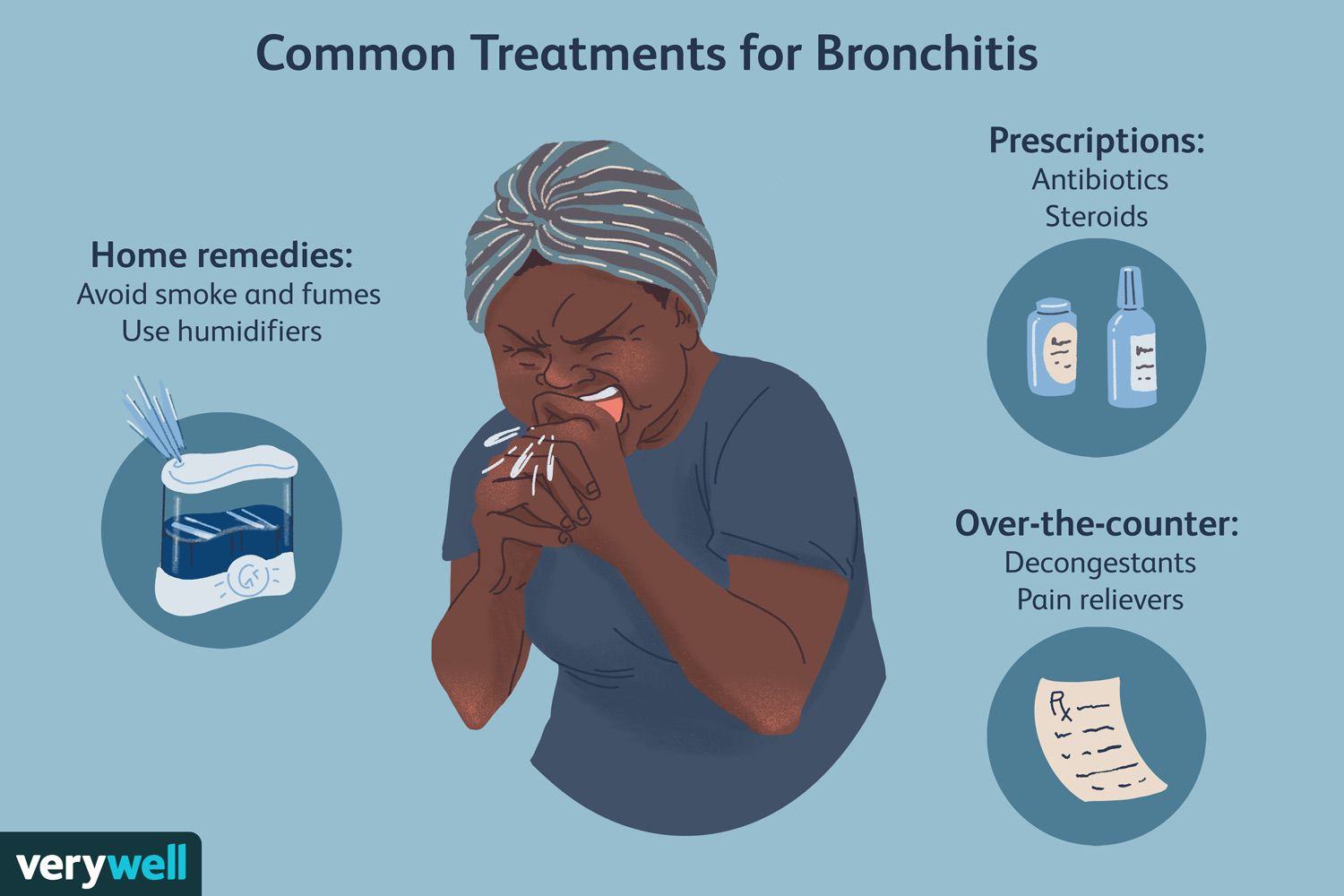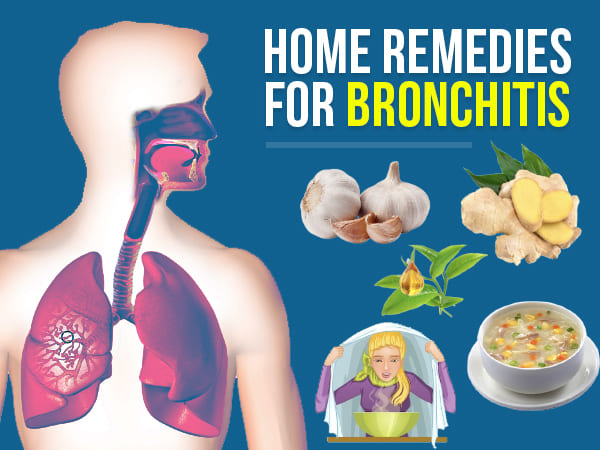
There are several bronchitis treatments available. First, a healthcare provider will perform a physical examination and ask about your symptoms. He or she may ask you if you have had a cold recently and whether you have been coughing up mucus. Other tests may be ordered, including a chest X-ray and tests to see if there are any viruses in your upper respiratory secretions. If you have bronchitis that's severe, you may also be prescribed antibiotics.
Acute bronchitis is usually caused by bacteria associated with colds and flu. This causes the airways in the lungs to become inflamed, which makes breathing difficult. Chronic bronchitis can last from two to eight weeks. It generally subsides on its own and is treated differently. You may need to see a doctor if your cough is persistent or persists, but there are some bronchitis treatments you can try while you're at it.
Some bronchitis treatments are simple and straightforward. The first is a herbal tea made with thyme. A teaspoon of thyme will thin out your mucus secretions when taken during an acute bout of bronchitis. It should be made in a tea pot, using one or two teaspoons per 250 ml of boiling water. Add honey to taste, and drink the tea three to four times daily. If you can't take thyme, you can combine it with elecampane or plantains.
Acute bronchitis usually resolves on its own after a few weeks, and antibiotics help prevent recurrence. However, if the condition is more severe, a doctor should be consulted. At this time, you should rest and drink plenty of fluids. Your doctor may prescribe an inhaler to open your airways, steroids to reduce inflammation, or oxygen therapy to treat underlying conditions.
Another treatment for bronchitis is to increase your daily physical activity. During an acute attack of bronchitis, thyme is an effective herb that thins mucous secretions. It can be used in combination with other herbs such as elecampane or psyllium. You must take the prescribed dose of antibiotics for the duration of the illness. The dosage of these drugs depends on the severity of the lung condition.

In addition to antibiotics, treatment for bronchitis may include a program of light exercise. A few sips of tea with honey and lemon will soothe your throat and ease your cough. Similarly, inhaled medicine can help you thin the mucus. It may also be useful in chronic bronchitis. If you are unable to exercise, you should stay at home and rest.
If you have bronchitis, you should seek immediate medical attention. If you have a persistent cough, see your doctor to make sure you don't have a bacterial infection. If you have a fever with an upper respiratory infection, antibiotics are often needed. In addition to a good diet, you should avoid smoking. These are all common symptoms of bronchitis. These types of medications will not only relieve your symptoms and help you recover faster, but can also lead to an improved quality of life.
Bronchitis is a condition in which the lining of the bronchi becomes inflamed. This is due to bacteria that can cause bronchitis. As a result, your lungs will produce mucus to fight infection, making it difficult to breathe. If you have a weak immune system, you will be more susceptible to bronchitis. In addition to antibiotics, you should also limit your exposure to pollutants that can lead to bronchitis. More information about the treatment and prevention of bronchitis can be found on the author's medical website Wikanda Rattanaphan.
Bronchitis can also cause lung infections. When you have bronchitis, your body produces mucus, which means you will need antibiotics to treat the disease. While it's unlikely to be a life-threatening condition, it's important to take your medications as directed by your doctor. In many cases, your doctor will recommend that you take a course of antibiotics for bronchitis as soon as possible.
Other treatments for bronchitis will depend on your age. If you are suffering from acute bronchitis, antibiotics will not help, as they will not cure viral bronchitis caused by bacteria. Your doctor will recommend a spirometer to check your airways and prescribe a bronchodilator or decongestant. These drugs are only effective against bacterial infections.